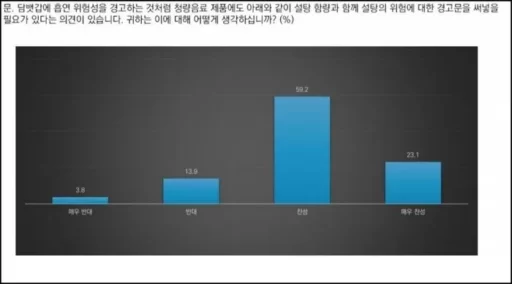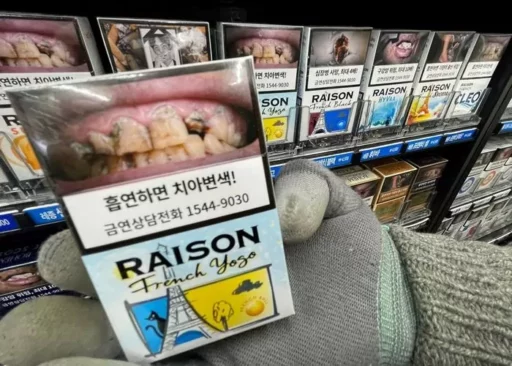Six out of ten citizens support the imposition of a 'sugar tax' on foods with high sugar content.
According to a survey conducted by Seoul National University's Health Culture Institute, 60% of citizens support a policy that imposes a 'sugar tax' on foods high in sugar content. The survey was conducted on 1,000 citizens on the 24th of last month, commissioned by Korea Research.

The survey results indicate that 58.9% of respondents supported imposing a sugar tax in the form of a health improvement burden on companies that produce sugar-containing products. This reflects the expectation that the increase in product prices due to the sugar tax will naturally lead to a decrease in consumption and, consequently, a reduction in sugar intake.
Similar to how the increase in cigarette prices has reduced smoking rates, the same principle could also be applicable to foods high in sugar.
In this survey, the response that the imposition of a sugar tax would "effectively improve public health" was the highest at 64.1%. This was followed by responses indicating that it would "reduce the production and supply of products with added sugars" (58.0%), "help secure resources for public health" (57.1%), and "reduce national medical expenses" (55.1%), reflecting positive expectations for its effects.

Citizens also expressed clear opinions on how to utilize the resources generated from the sugar tax.
The Health Culture Institute stated that the health community cultural fund generated from the sugar tax should be used for purposes such as "support for essential and public healthcare," "support for the elderly and vulnerable populations," and "improving the quality of school sports activities and meals for youth."
Regarding using the cultural fund to "support essential public healthcare personnel, facilities, systems, etc.," 80.4% showed support, as did 79.0% for "improving the quality of school sports activities and meals," 78.9% for "support for public infrastructure for health communities," 77.7% for "support for elderly health," and 75.3% for "support for low-income health."
In a survey conducted last year involving 1,000 office workers and 151 companies at Seoul National University, 76% of office workers and 70% of companies supported a policy that imposes health burdens on companies causing health risks. Notably, the support rate was higher among workers (77%) than among management (63%).

Regarding labeling soft drink products with sugar content and warning about the dangers of sugar, 82.3% showed high support. The response indicating that such warnings would "inform consumers about the risks of sugar" reached 81.1%, with 77.1% believing it would "encourage companies to produce sugar alternatives," and 72.1% agreeing it would "improve public health."

Cases and effects of sugar tax implementation abroad
Recent studies continue to accumulate evidence that sugar added to beverages can cause serious diseases such as cavities, obesity, diabetes, myocardial infarction, stroke, and cancer.
In this regard, Professor Jin-Soo Lee from the Graduate School of Public Administration at Seoul National University noted, "Currently, 117 countries, including the UK, Mexico, France, and Norway, are reporting policy effects, and it is crucial to consider implementing health burdens on foods high in sugar as positive opinions from citizens and companies have been confirmed in our country."
Professor Ji-Hyun Yoon, who is the deputy director of the Health Culture Institute and a professor in the Department of Food and Nutrition, stated, "Cases in countries like the UK show that with the introduction of health burdens on foods high in sugar, consumer sales decreased by 33% due to price increases, leading to a reduction in sugar intake. Research results have been released indicating that various metabolic disorders related to sugar, chronic diseases, cancer, and pediatric asthma have also decreased."
Furthermore, Professor Young-Ho Yoon, the director of the Health Culture Institute and a professor at Seoul National University College of Medicine, argued, "Although the Ministry of Food and Drug Safety is promoting a low-sugar policy, adult diseases like obesity and diabetes are not decreasing. Thus, it is necessary to implement a sugar tax on foods high in sugar to reduce sugar intake and associated adult diseases." He also predicted that it would create a quadruple effect of reducing chronic diseases, creating health value in food and beverage companies, reducing medical expenses, and establishing health community infrastructure.
Image source: Reference images to assist in understanding the article / gettyimagesbank, Seoul National University Health Culture Institute, cigarette package warning / News1


